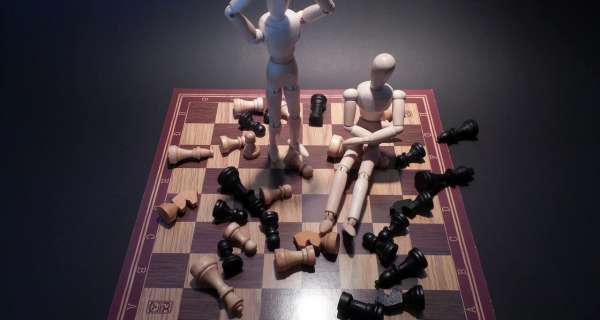People with behaviour or substance use disorders (SUD) often have obsessions and compulsions. If you have a troublesome disorder, professional therapy should be your primary step. However, even after treatment, traces of obsessive or compulsive behaviours often remain and managing it becomes part of the long-term recovery process. Some people even exhibit the symptoms without displaying other defects.
Obsessions are persistent, intrusive thoughts that cause stress, while compulsions drive you to perform unnecessary repetitive acts. Perfectionism is a similar type of stressor, as it has elements of both. In daily conversation, we often use the terms “compulsion” or “compulsive behaviour” when we talk about any of these traits.
In modern society, compulsions are generally seen as negative traits, as it is often associated with unhealthy activities, or at least regarded as unproductive time wasters. The activities include using alcohol or drugs, gambling, sexual pursuits, eating disorders and many others. In work situations, the person may waste time on minute details, or redo a task several times when there is no need for it. This can hamper career prospects.
Some victims of compulsive behaviours manage to cope reasonably well with it in work situations, due to exterior pressures like supervision, deadlines and other elements, but most struggle with it, especially in their private lives.
Managing constructive compulsions
If compulsive behaviour is not severe enough to warrant therapy, it can be channeled into constructive activities in your private life and the drawbacks can be reduced by teaching yourself how to regulate them. Once you have mastered it in your private life, the results can spill over and assist you in your working life too. It’s also a great way to fill the idle times that someone may otherwise fill by taking alcohol or drugs.
There are numerous healthy outlets for our compulsions, such as hobbies, crafts, sports or similar interests. The challenge is finding options that will engage your enthusiasm in a sustained, positive way. Sometimes it helps if it provides financial income, because some of us have a natural urge to justify expenses. Keep in mind that financial benefits include the savings you achieve by not spending on your old habits.
Most compulsive people seek some form of mental reward, also known as reinforcement, so any new activity would have to fit this pattern. You should pick one that will provide such rewards, otherwise it will be a weak diversion that lacks the motivation you need to persist with it. Look for something that will sincerely interest you and produce feelings like pleasure and wellbeing, without being a new source of trouble.
It is also important not to choose a subject that is beyond your reach. If it’s too expensive or too difficult, or if there are any significant obstacles, then the activity may remain a desire, rather than becoming an achievement. Desires are things that you want, but can not have, and it will leave you feeling frustrated and hopeless.
It takes time, patience, discipline and effort to learn how to avoid turning even a positive activity into becoming a new unhealthy compulsion. It is not free of temptation.
Once you have chosen an activity, set clear schedules to avoid over-indulging in it, or you may run the risk of turning it into just another unhealthy obsession. Limit the activity to a reasonable length of time per session and force yourself to stick to this rule, unless you find yourself alone and bored, when you may consider it as a healthy diversion – the idea is to maintain a reasonable balance.
Focus hard on not overdoing what you are doing. Compulsive people tend to overdo things. Exercise conscious self-control and accept that it is sufficient if something is good enough – it does not have to be perfect or better than how other people would do it. If it is good enough, then brutally force yourself to move on to the next step.
If you are suddenly assailed by merciless, unwanted cravings or stimuli while performing a task, you can sidestep it by refocusing. If you distract yourself by doing something else for 15 minutes or so, you may be able to resume what you were doing without further subconscious nagging.
Consider the needs of those around you. Do not exaggerate or glorify the need for your new activity. Often others will silently tolerate it if you neglect them for a while, but not always. The goal is to reform yourself. Allowing space for other people is an important part of it. Learn to break away and to pay attention to others without impatience.
If you encounter a difficult obstruction, do consult a therapist. It is not a sign of weakness or poor intellect. Some aspects are very complex and specific to your own psyche, so random advice may not work.
Accept that you will never be able to completely cure yourself, but do not give up trying. At worst, you will gain precious improvements in every aspect of your life – and qualities that you have missed out on for a very long time. Your life will be more fulfilling if you can at least reduce the destructive influence of unchecked obsessions and compulsions.
Disclaimer: Public platforms provide general information for broad audiences. Individuals are required to consult suitably qualified law and health professionals for personal legal and health advice.

















